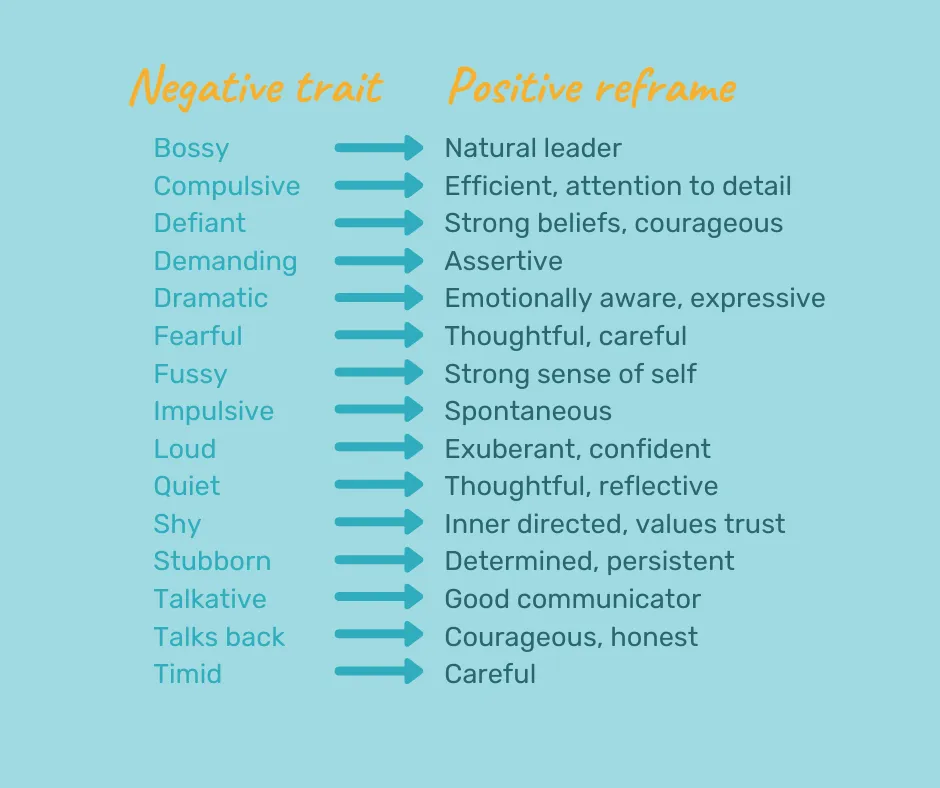The ultimate guide to increasing your child's self esteem

How is your child’s self esteem? Does it seem to be too high? Too low? Or healthy? As a parent we want our kids to have healthy self esteem or self confidence. Healthy self esteem is the foundation of good mental health, being open to learning new things, accepting criticism without feeling bad, and not being the target of bullies.
Yet many kids have low self esteem, which will affect them throughout their life. In this blog I’m going to explain why it’s important to build a child’s self esteem, and show you how to increase your child’s self esteem. For the biggest tips on boosting children’s self esteem, keep reading until the end.
The dangers of low self esteem
Having a healthy self esteem is important for so many different aspects of a child’s development. Amongst other things. Low self esteem can lead to:
- Bullying - that’s being at risk of being bullied, or being a bully themselves
- Behaviour problems such as quitting, cheating, lying
- Mental health issues such as depression, worried about failure, seeing everything as negative, low confidence
- Poor social skills, feeling awkward, shy, self conscious
The causes of low self esteem
Our words and actions With the best will in the world, we can erode our kids’ self esteem with the words and actions we use. But that doesn’t mean we have to second guess ourselves or feel constantly guilty. There are techniques you can use to make it feel more genuine and automatic, without sacrificing yourself (check out the next section).
With the best will in the world, we can erode our kids’ self esteem with the words and actions we use. But that doesn’t mean we have to second guess ourselves or feel constantly guilty. There are techniques you can use to make it feel more genuine and automatic, without sacrificing yourself (check out the next section).
When we’re “too busy”
When we constantly tell our kids “not now” or “I’m busy” or “when I’ve finished this,” they can start to believe that they are not important. This in turn can lead to low self esteem in some kids. It is hard to avoid this when you have so many things to do, but carry on reading the next section to discover alternatives to avoid this happening.
School
School can be a hard time for some kids, especially the ones who are more sensitive, more easily bored or have a hard time staying still. While it is hard for teachers to cater for the needs of every child in their class, many insist on punishing children for things they cannot control.
There is always a reason for a child’s behaviour. And if you have found things that work to calm your child and get them to listen, you may want to share them with their teacher. At the very least, it’s good to have an open dialogue with their teacher. If a child has trouble sitting on a chair and concentrating, but can easily do their work while wearing noise cancelling headphones and lying on the floor, why is it “wrong” for them to work like this? Try and explore possibilities for making everyone’s life easier with their teacher.
Toxic family comments
Even well-meaning family members who are used to things being a certain way: boys should be tough, not like pink, girls should like sparkles and dolls etc., can lower kids’ self esteem with their comments. These comments usually criticise kids for being who they are - which can lead kids to think they're not good enough.
Setting boundaries and sticking up for your kids shows them that you think it’s perfectly acceptable for them to be who they are.
Being a sensitive or strong-willed child
Kids who are a bit more “challenging” or “hard to handle” tend to have more problems with self esteem than the average child because they’re often told they’re too this or too that. Or constantly asked “why can’t you be quieter”, or “why do you always have to…”
No wonder many of them develop the belief that being themselves isn’t acceptable, and they should be more like other kids. Which in turn leads to even more behaviour problems. For suggestions how to easily change this (and how you think of them), keep reading.
How to increase your child’s self esteem
Let them be themselves
All too often we have ideas of how our children should be and how they should act. But that’s us, not them. Instead, focus on working out their personality and their likes. What makes them tick?
The more you show them that you know them and appreciate them just as they are, the more they will feel listened to and accepted just who they are. In addition you can
- Listen to them
- Encourage them to do the things they’re interested in
- Play with them
Praise their strengths
If we think of our kids as “bossy”, “difficult”, “always causing trouble” they will pick up on that and start to believe it. Once they believe something about themselves, they will start to act that out. So their behaviour will become even more of the behaviour you didn’t want.
Instead, think of how you could positively think of their behaviour. Do you have an incredibly determined child? Someone who knows their own mind? Are they adventurous? Empathic? Do they have a fantastic amount of energy?
And praise their strengths. Let them know it’s ok for them to be who they are, because they have a lot of positive traits. They may also have some behaviours they need to work on, but then doesn’t everyone, including ourselves? So they will grow to realise that they are enough, just the way they are, with all their positive traits and their flaws.
When we don’t have time for them right there and then 
When we don’t have time in the moment to play lego or do something our kids want us to, instead of telling them not right now, there are other things we can say so that they don’t start to think they’re not important.
We can say something like “I would absolutely love to play lego/ dinosaurs/ unicorns with you, you’re so fun to play with. Give me 5/ 10 minutes to finish this and I’ll be right with you!”
If we then compartmentalise our time, say 20 minutes for emails, 20 minutes for play then 20 minutes for making dinner, we don’t have to feel guilty about not doing one of the others, or swapping between each one and feeling stressed. You could even get your kids to help you make dinner. Probably they’re not going to be much help with emails… but you never know.
Strong-willed kids

Strong-willed or sensitive kids can be the hardest to parent, especially since you often have no idea why they just had a huge meltdown, or whether a day with them will be fun or a disaster. It’s exhausting.
It’s important that you change your mindset about them. Look at the chart above and see what positive qualities you can use to replace how you usually think of them. That way they will pick up on the positivity rather than the negativity. Yes, just changing how you think of them will increase their self esteem because it changes how you talk to them and how you interact with them.
You can also work on trying to find out the reasons behind their outbursts. A lot of strong-willed or sensitive kids can get overwhelmed very easily, far more easily than the average kid. So the chances they have a tantrum or huge meltdown are a lot higher than with the average kid. But what sets them off? If you can work that out, you can probably avoid a lot of the outbursts. If you would like more info on where to start trying to work out what is causing their meltdowns, click here.

With the best will in the world, we can erode our childrens’ self esteem with our words and actions. This blog has listed some of the more common situations and given tips on how to prevent this, and boost your child’s self esteem.
If you’re looking for more ways to boost your child’s self esteem, join our Calm Fun Parents Facebook group where we talk about this parenting topic, along with many others.
